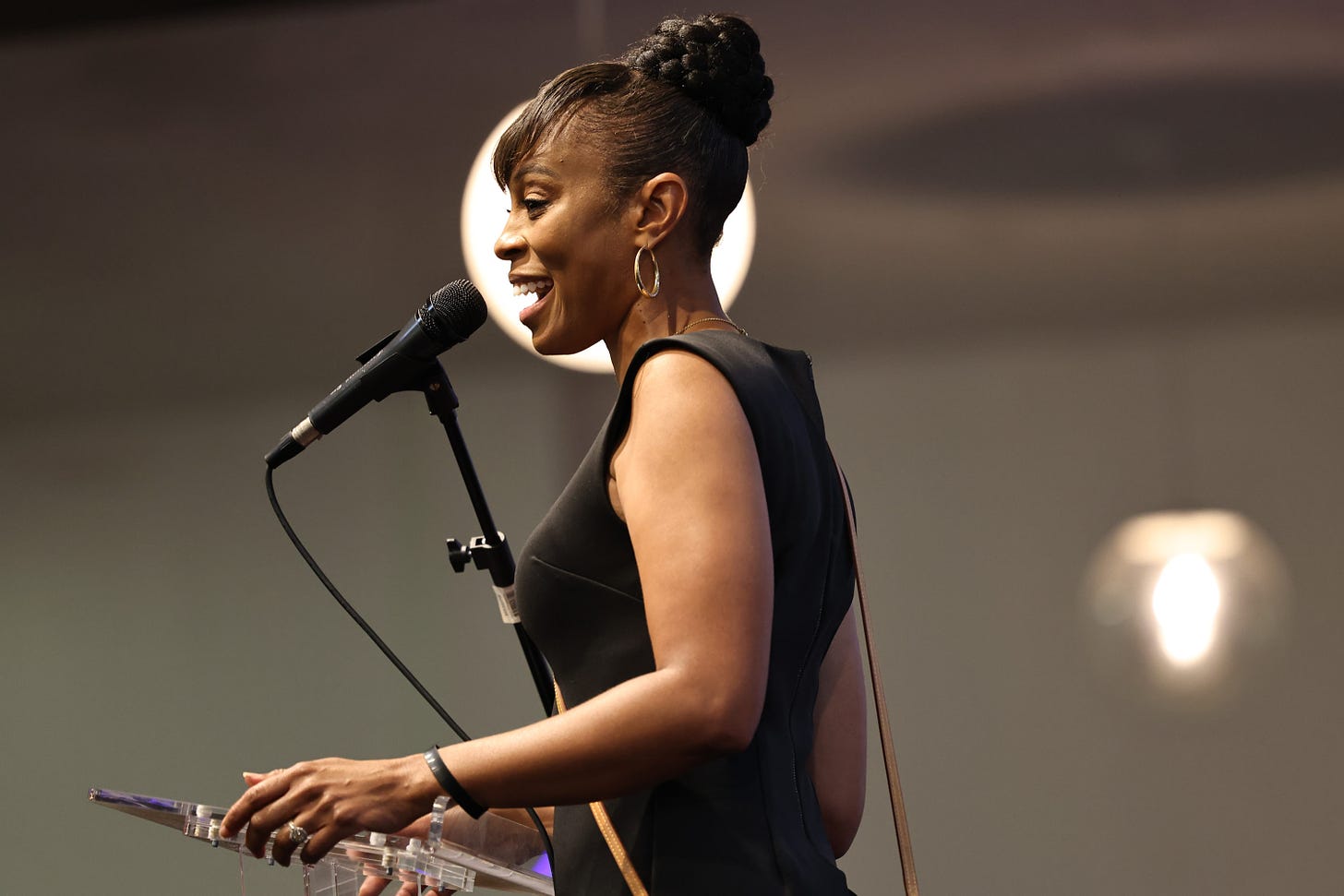Springtime for Moderate Democrats
Shontel Brown’s win is just the latest sign of hope that the left isn’t as dominant a force in Democratic politics as it wishes to be.

As we all know, a moderate Democrat, Joe Biden, won the Democratic nomination for president in 2020—and then the general election. A fluke? Perhaps not.
This year started off with the more moderate candidate winning the Democratic nomination (and then the general election) in New Mexico’s 1st Congressional District. Then the more moderate Democrat prevailed in the 2nd Congressional District of Louisiana.
Next, a moderate Democrat, Terry McAuliffe, won the Virginia gubernatorial primary. Another moderate, Eric Adams, prevailed in the New York City mayoral primary. And tonight, in the contest for the Democratic nomination in the 11th Congressional District of Ohio, the moderate Shontel Brown has come from behind to defeat the co-chair of the Bernie Sanders 2020 campaign, Nina Turner. All these victorious moderate Democrats are favored to win their general elections.
And in virtually all these races moderates outperformed expectations: Biden, Adams, and Brown weren’t supposed to win, and McAuliffe wasn’t supposed to win with the huge margin he had.
So let me draw a conclusion from these data points: The Democratic party is a moderate party. It’s far more moderate than the oh-so-woke left hopes. It’s also far more moderate than oh-so-Trump-justifying Republicans claim to fear.
For those of us who would like America to avoid illiberalism of either the left or right, this is a good thing.
Maybe a very good thing.
Because the Republican party seems as captive to Donald Trump as it’s ever been.
It would be nice to have two parties committed to a path that doesn’t lead into the dark forest of authoritarianism. We don’t.
But we do seem to have one. And one mostly reasonable party is a lot better than none. So if you want centrist elected officials, it looks like the Democratic party might be the place to focus your efforts.
But the margins aren’t great, and the future of the Democratic party is still very much in the balance. So, all other things being equal, decent voters torn between the two parties could probably do more good, at least for now and at least in some of the country, fighting the battle in the Democratic party rather than the Republican.
To put it simply: Defeating the illiberalism of the left in the Democratic party looks more achievable, for now at least, than defeating the illiberalism of the right in the Republican party.
And of course it’s about more than defeating illiberalism and authoritarianism. It’s also about governing the nation competently and sensibly. If “future former Republicans,” to use Pete Buttigieg’s phrase, have some good ideas about governing—and we tend to think we do—we most likely have a better chance at seeing those ideas implemented by Democrats today than Republicans.
Meanwhile, congratulations to Shontel Brown, and to her winning coalition of blacks and whites, urbanites and suburbanites, and loyal Democrats joined by some independents and Republicans who took Democratic primary ballots.
Perhaps, here in America, here in 2021, the center can hold.



